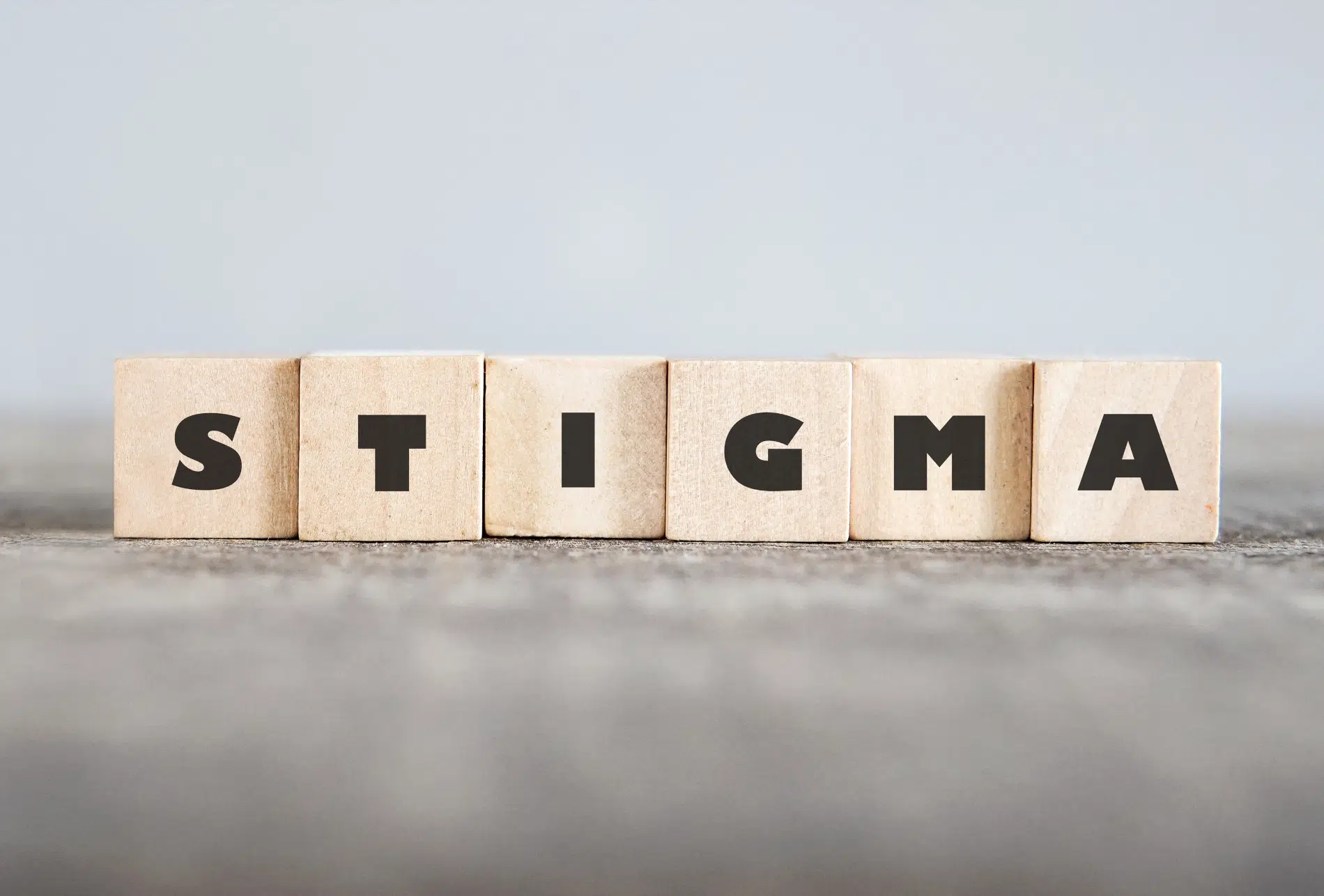[vc_row][vc_column][vc_custom_heading text=”The Stigma of Addiction” font_container=”tag:h2|text_align:left” use_theme_fonts=”yes”][vc_column_text]The stigma of addiction is keeping people from asking for help. Stigma is a “mark of disgrace,” it is discrimination against someone for being different than the rest, it is a negative judgment. I’m not sure when being different from everyone else became a bad thing, or why we think badly about people that have a mental illness or substance abuse issues. Somewhere along the way there became a stigma attached to addiction, and it is keeping people from asking for help when they need it most. The stigma of addiction can often be linked to the erratic behaviors that coincide with alcohol or drug use. Many people who struggle with addiction fall into legal troubles, money troubles, and relationship issues. Professionals think that these negative consequences might be causing stereotypes of addiction and contributing to the stigma of addiction.[/vc_column_text][/vc_column][/vc_row][vc_row][vc_column][vc_column_text]The stigma of addiction is also associated with personal shame and guilt. When we are abusing drugs, we know our behaviors are erratic and we know what we are doing isn’t right, but we cannot stop, causing people to be filled with shame and guilt and leaving us afraid to reach out for help. For years the combination of public and private stigma has created obstacles in addressing addiction. Stigma of addiction has created a barrier to prevention, treatment and recovery of individuals, families and communities. The stigma of addiction is killing people who deserve help and compassion. When someone begins to receive the treatment they need, the erratic and negative behaviors that add to the stigma of addiction tend to decrease.[/vc_column_text][/vc_column][/vc_row][vc_row][vc_column][vc_single_image image=”1088″ img_size=”full” add_caption=”yes” alignment=”center”][/vc_column][/vc_row][vc_row][vc_column][vc_custom_heading text=”Addiction is a Disease” font_container=”tag:h3|text_align:left” use_theme_fonts=”yes”][vc_column_text]For too many people suffering with addiction, it is a “private” matter that isn’t talked about. When compared to other chronic health conditions such as heart disease, asthma and diabetes, addiction is looked at in society as a personal failing. Even when the symptoms of the disease are taking over someone’s entire life, we too often avoid seeking help for fear of even acknowledging the problem. This is one reason only one in 10 Americans with a substance use disorder receives the treatment they need to get well. To end the stigma of addiction we must stop looking at addiction as a moral issue or a criminal matter, and start looking at it like the public health issue that it is. At Midwest Recovery Center, we are committed to challenging the stigma and stereotypes associated with addiction.[/vc_column_text][/vc_column][/vc_row][vc_row][vc_column][vc_column_text]We work with families to help educate them with basic knowledge and experience to recognize and address any future issues they may have. We work with the community to shine a light on people who are in recovery and living a life beyond their wildest dreams. In speaking out we show the world that people actually do recover from drug and alcohol addiction. Addiction is a chronic disease of the mind, body and spirit and not a lapse in judgement. Addiction affects individuals who are every bit as intelligent and talented as anyone else.[/vc_column_text][/vc_column][/vc_row][vc_row][vc_column][vc_custom_heading text=”How To Make A Difference” font_container=”tag:h3|text_align:left” use_theme_fonts=”yes”][vc_column_text]One key to ending the stigma of addiction that every person can work on is the words we use to describe addiction. For example, instead of calling someone a “junkie, meth-head, addict or ex addict” call them a person with substance use disorder, alcohol use disorder, person suffering from the disease of addiction or a person in recovery. Changing the way we talk about addiction can help to end the stigma of addiction by changing peoples attitudes and beliefs on addiction.[/vc_column_text][vc_custom_heading text=”End the Stigma of Addiction by Getting Help Now!” font_container=”tag:h3|text_align:left” use_theme_fonts=”yes”][vc_column_text]Don’t let the stigma of addiction keep you or a loved one from getting the help they need. Addiction is a deadly disease, more than 70,000 people died last year from overdose. Start the conversation by speaking to one of our recovery specialists, we are here to help you, your family, and community recover from the disease of addiction. End the stigma of addiction and get help now.[/vc_column_text][/vc_column][/vc_row][vc_row][vc_column][vc_single_image image=”1089″ img_size=”full” add_caption=”yes” alignment=”center”][/vc_column][/vc_row]
Home » Stigma of Addiction
Stigma of Addiction

Are You Covered for Addiction Treatment? Find Your Insurance.






Midwest Recovery Center
*The stories shared in this blog are meant to illustrate personal experiences and offer hope. Unless otherwise stated, any first-person narratives are fictional or blended accounts of others’ personal experiences. Everyone’s journey is unique, and this post does not replace medical advice or guarantee outcomes. Please speak with a licensed provider for help.



















